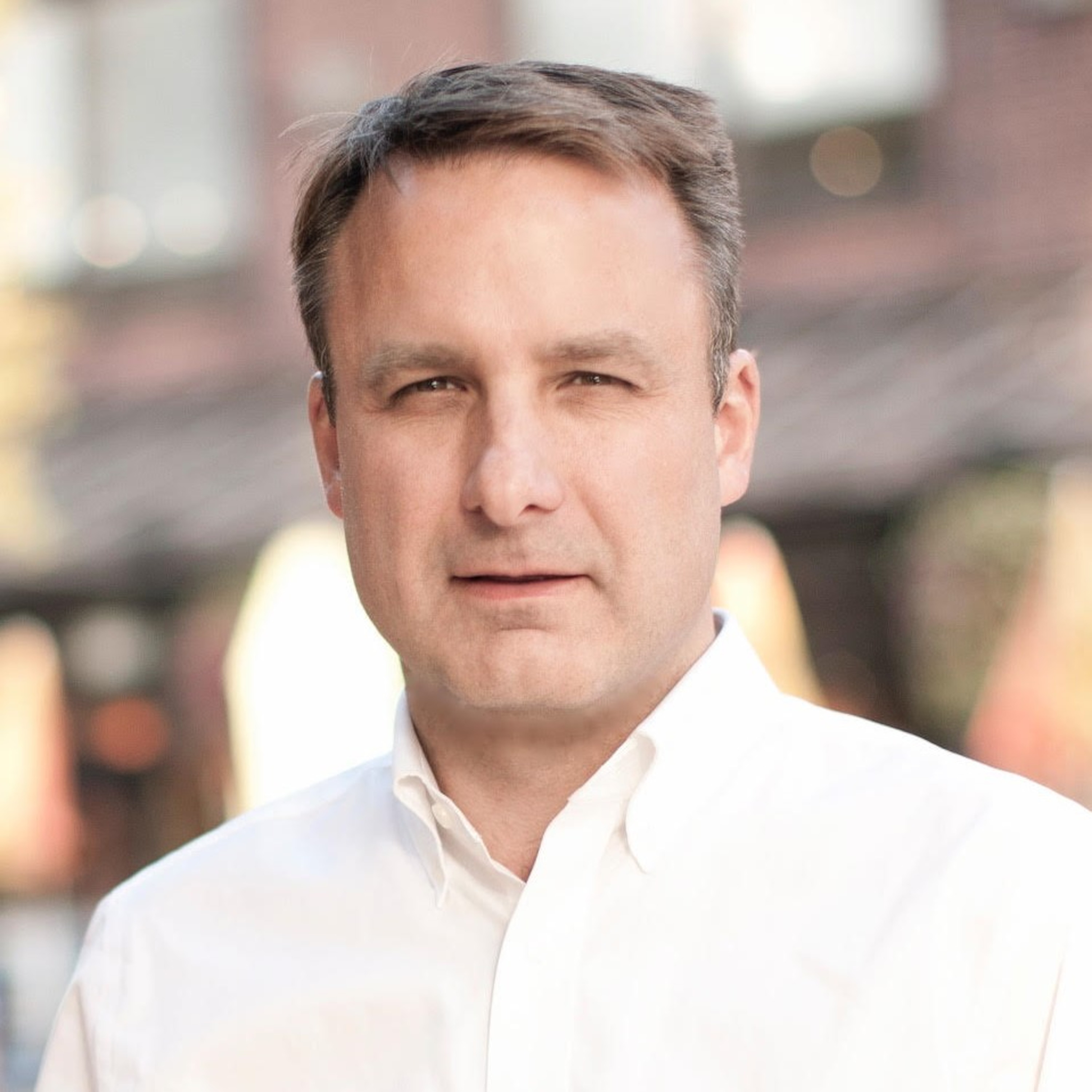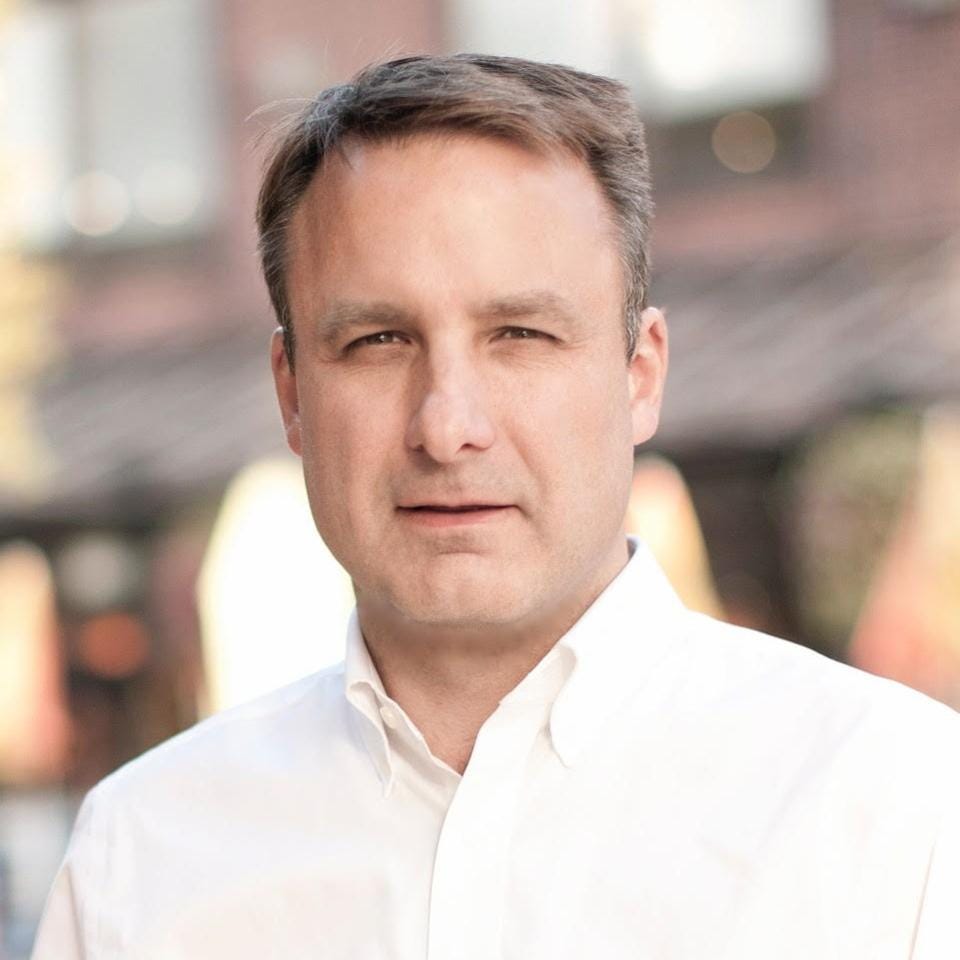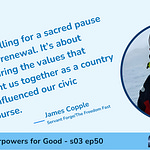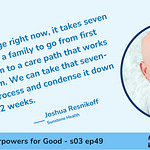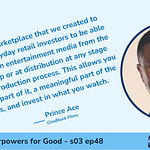This post was originally produced for Forbes.
Dr. Jonathan Foley, 50, executive director for Project Drawdown, joined me for a discussion about climate change (watch in the video player above). His statement, “This may be the single biggest business opportunity in human history,” sounds like hyperbole but there may be no one better qualified to make that statement correctly.
With a Ph.D. in atmospheric sciences from the University of Wisconsin and having spent three decades doing and managing research into climate change, he is certainly qualified on the science. His case that the business opportunity is there hinges on this key premise:
We literally have to reinvent our energy systems, our food systems, our manufacturing, our cities. Everything! You can look at that is like, ‘Crap, that’s a really big problem.’ I think we have to look at as “Wow, what a great opportunity!” especially if we do it right. We can improve lives. We can reduce inequity. We could solve some of our other social ills if we do it wisely. And we could build a better world for future generations and for ourselves.
If we’re going to have to reinvent so much of our modern world, the investment opportunity does begin to be interesting. Clearly, the need for investment capital is there. What about getting a return on that capital?
Project Drawdown, initially led by Paul Hawken, created a list of 100 climate solutions and published it in the New York Times bestseller Drawdown. The team, now led by Foley, is in the process of updating the list and hopes to have that done before the end of the year.
Jonathan Foley PROJECT DRAWDOWN
Here’s what the list indicates about financial returns, according to Foley. “There are dozens and dozens of solutions. If we add them all together, they’re more than enough to stop climate change if we really deployed them at scale. And the preliminary kind of financial analysis is for every dollar we spend doing this we return three to four more back to the economy. That’s not even counting, avoiding the damages of really bad climate change in the future, which it could be untold trillions and trillions of dollars and literally hundreds of millions of lives affected.”
He says we must look past the familiar solar and wind renewables that dominate the discussion about climate change solutions—not that they don’t work—simply because we need more than that.
Foley highlights five areas that make up 90% of climate change drivers:
Electricity
Food, land use and forestry
Industry
Buildings
Transportation
In each of these areas, there are opportunities for investors, businesses and entrepreneurs. Trillions will be spent and invested to reinvent the global economy to operate more sustainably.
The carbon impact of buildings is a mystery to some who are new to the climate conversation. Concrete is the biggest culprit, according to Foley. “If cement we’re a country, by the way, it would be the third-largest emitter of carbon dioxide in the world after China and the United States.”
Concrete doesn’t just require vast amounts of energy to produce, it also emits carbon throughout its life cycle. Entrepreneurs and investors, including Bill Gates and Warren Buffett, are working on new chemical approaches to cement that will require less carbon or that may even be capable of absorbing it.
Electric cars represent a huge opportunity as well. Over the next decade, if Foley’s belief is correct, much of the fleet of vehicles on the road today will be replaced by all-electric ones. “Two years ago Bloomberg News folks projected that battery-powered cars, electric cars would be cheaper than gas car cars as soon as 2027; they just had to revise that the other day and say, nope, that’s gonna happen in 2022, because batteries are getting cheaper.”
Overall, Foley is remarkably optimistic about the future precisely because of market forces. “That’s what I love about these tech disruptions, that solar and wind now are cheaper than coal. You don’t need Washington to tell us don’t burn coal. No one is going to burn coal anymore; the market won. Electric cars: the market will win again.”
“Project Drawdown was a dramatic breakthrough – extending our perspective beyond energy production and consumption to the underlying drivers of energy use. It opens up a whole range of new options to address climate change and puts those in context with all the traditional solutions,” says Bob Perkowitz, president of ecoAmerica.
Only time will tell whether climate change represents the “single biggest business opportunity in history” but Foley makes a good case—and he’s a good one to make it.


